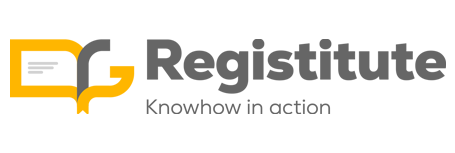
Medical and health professionals , The healthcare landscape across the Middle East and North Africa (MENA) region is evolving rapidly. Driven by regulatory reform, digital innovation, and expanding markets, the environment presents both challenges and opportunities. For Medical and health professionals, understanding how to navigate this complexity is essential. This comprehensive article explores key regulatory updates, market trends, digital health advances, and strategic insights to empower professionals like you to excel in MENA’s healthcare ecosystem.
Regulatory Landscape & Harmonization Efforts
MENA’s Push Toward Global Standards
Regulatory bodies in the MENA region, including those in Saudi Arabia, UAE, and Egypt, are actively harmonizing their medical device and pharmaceutical regulations with international frameworks like EU MDR/IVDR and ISO 13485 This harmonization enhances product safety and supports Medical and health professionals in delivering globally compliant therapies and devices.
Egypt’s Evolving Guidelines
In October 2024, the Egyptian Drug Authority (EDA) introduced mandatory guidelines for preclinical testing and clinical trials for medical devices. This advancement marks a critical milestone for Medical and health professionals in clinical research, enabling higher-quality evidence generation within the region.
UAE’s Pharmaceutical Regulation Overhaul
The UAE issued Federal Decree-Law No. 38/2024 in late 2024, updating its pharmaceutical regulatory framework. These reforms directly affect pharmacies, device distributors, hospitals, and researchers, requiring Medical and health professionals to adapt swiftly to the new legal landscape.
Market Growth & Commercial Dynamics
GCC’s Medical Device Market Boom
GCC medical device spending is forecasted at $11.7 billion by 2025. Supported by Saudi Arabia’s Vision 2030 and infrastructure investments, demand is rising for advanced therapies and IVDs—opening opportunities for Medical and health professionals service providers.
Clinical Trial Infrastructure Expansion
Clinical research in MENA is anticipated to grow from $896 million in 2024 to $1.3 billion by 2029 at a 6.2% CAGR. This boom offers clinical investigators, hospital networks, and CROs avenues to participate in multicenter studies and leverage emerging therapeutic areas.
Digital Health Innovation & Regulatory Response
Telemedicine, and Digital Therapeutics
Digital Medical and health professionals technologies, particularly AI-enabled devices, telemedicine, and Health, are proliferating across the region. Regulators, especially Saudi Arabia’s SFDA, are introducing frameworks to manage digital health, cybersecurity considerations, and software-as-medical-device oversight.
Post-Market Surveillance & UDI
GCC countries are enhancing post-market monitoring and requiring unique device identification (UDI) for traceability. For Medical and health professionals, this means improved monitoring of adverse events and better clinical data access.
Harmonization & Reliance Strategies
Regulatory Reliance Models
Many MENA regulators adopt reliance strategies, acknowledging approvals from authorities such as EU, FDA, and SFDA . This streamlines processes, enabling Medical and health professionals to accelerate product deployment by leveraging prior clearances and reducing redundancy.
Quality & Compliance Standards
ISO 13485 and Beyond
Achieving ISO 13485:2016 certification ensures robust quality systems for medical devices. For hospitals, clinics, and regulatory teams, this translates to consistent safety and reliability in clinical settings.
EU MDR Transition Impacts
MENA regulators monitor EU MDR timelines and any extensions. Medical and health professionals in procurement and device safety must ensure products adhere to evolving European standards to maintain import eligibility.
Emerging Technology Trends
· AI-Enabled Diagnostics
AI in diagnostics is gaining regulatory attention due to its complexity . Hospitals and laboratory professionals must prepare for new standards around algorithm validation and clinical integration.
· Wearable Medical Devices
Wearables are growing at ~25.5% CAGR globally and ~9.4% in GCC. For clinicians and public health officials, leveraging wearable data opens doors to personalized medicine initiatives and remote monitoring programs.
Professional Development & Collaborative Ecosystem
Regulatory Training Opportunities
The 2025 MEA MedTech Regulatory Summit in Dubai attracted over 135 regulatory professionals from 25 countries. Such events are crucial for medical and health professionals to stay current, exchange best practices, and network with regional authorities.
Public–Private Partnerships
Regulatory updates, such as Egypt’s WHO-level recognition, are enabling local manufacturing. For professionals in clinical trials, pharma, and medtech, collaboration with both public and private sectors supports research and development capacity.
Why This Matters for Medical and Health Professionals
- Improved Patient Outcomes: Regulatory rigor ensures higher safety and efficacy of devices and therapies.
- Faster Access to Innovation: Reliance mechanisms shorten approval timelines, benefiting patient care.
- Career Advancement: Familiarity with regulatory standards enhances qualifications for leadership roles.
- Regional Impact: Engaging across MENA supports public health goals and strengthens healthcare systems.
A Strategic Path Forward
To leverage these trends effectively, medical and health professionals should:
- Stay updated through professional training, webinars, and summit attendance.
- Align internal processes (e.g., quality systems, UDI, clinical data) with emerging regulations.
- Foster cross-border collaborations via trials, public-private initiatives, and knowledge networks.
By proactively embracing these developments, you can position yourself—and your organization—for success in the dynamic medical and health professionals ecosystem of MENA.
Conclusion
The MENA region’s healthcare environment is undergoing a profound transformation—shaped by regulatory harmonization, digital innovation, and strategic growth trends. For medical and healthcare professionals, staying informed and adaptable is no longer optional—it’s essential. By aligning with global standards, adopting new technologies, and participating in collaborative networks, you can drive improved patient outcomes, scale innovations, and strengthen regional healthcare resilience.
Ready to take the next step? Contact us at Registitute to explore how we can support your compliance, innovation, and market access goals: reach out for tailored advice, clinical trial facilitation, or regulatory pathway planning.
Localization: The Key to Regional Market Success
Effective localization is critical for market success in the MENA region. Localization goes beyond translation; it involves:
- Customizing instructions for use (IFUs) in local languages
- Adapting packaging, labeling, and artwork to meet local norms
- Registering products through local authorities such as the SFDA or EDA
- Aligning clinical trials and product claims with cultural and medical expectations
Without localization, companies risk non-compliance or poor market reception. Culturally sensitive product positioning and language adaptation improve both regulatory outcomes and customer trust.
Expedited Entry in Saudi Arabia & Egypt
A top-tier IVD manufacturer sought concurrent market entry in Saudi Arabia and Egypt. By leveraging reliance pathways, enhancing dossier precision, and utilizing our local representation, Registitute’s Healthcare professional services delivered approvals in under five months—significantly faster than industry norms. Proactive regulatory planning and cultural adaptation were key success drivers.
Conclusion & Call to Action
In today’s dynamic and regulated MENA healthcare environment, investing in high-quality Healthcare professional services is essential for success. Whether you’re a medical device company, IVD manufacturer, biotech innovator, or pharmaceutical firm, aligning with Registitute equips you with strategic insight, technological tools, and local presence needed to accelerate market entry.
Our integrated services—spanning from registration and regulatory strategy to commercialization and post-market support—turn complex challenges into competitive advantage. We tailor our approach per client need, leveraging our regional expertise and digital capabilities for seamless execution.
Ready to elevate your compliance journey and speed up access to MENA markets? Contact us today and find out how Registitute’s Healthcare professional services can power your growth and innovation across the region.




